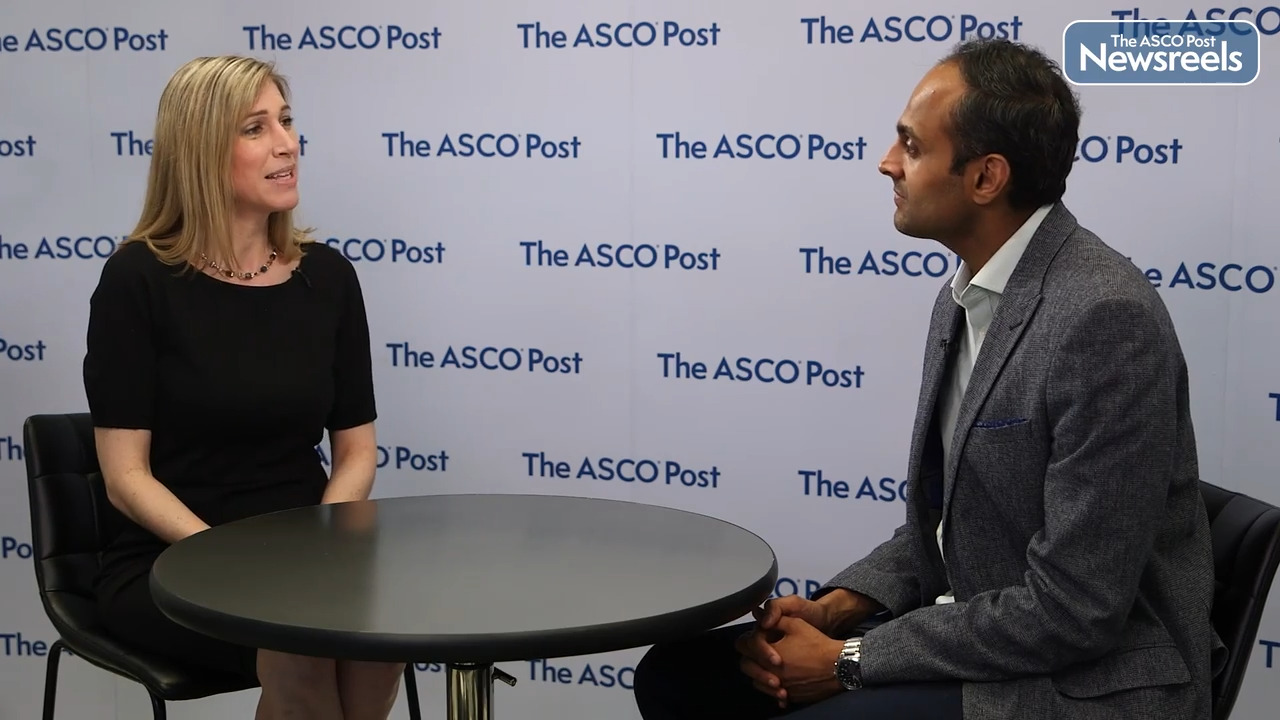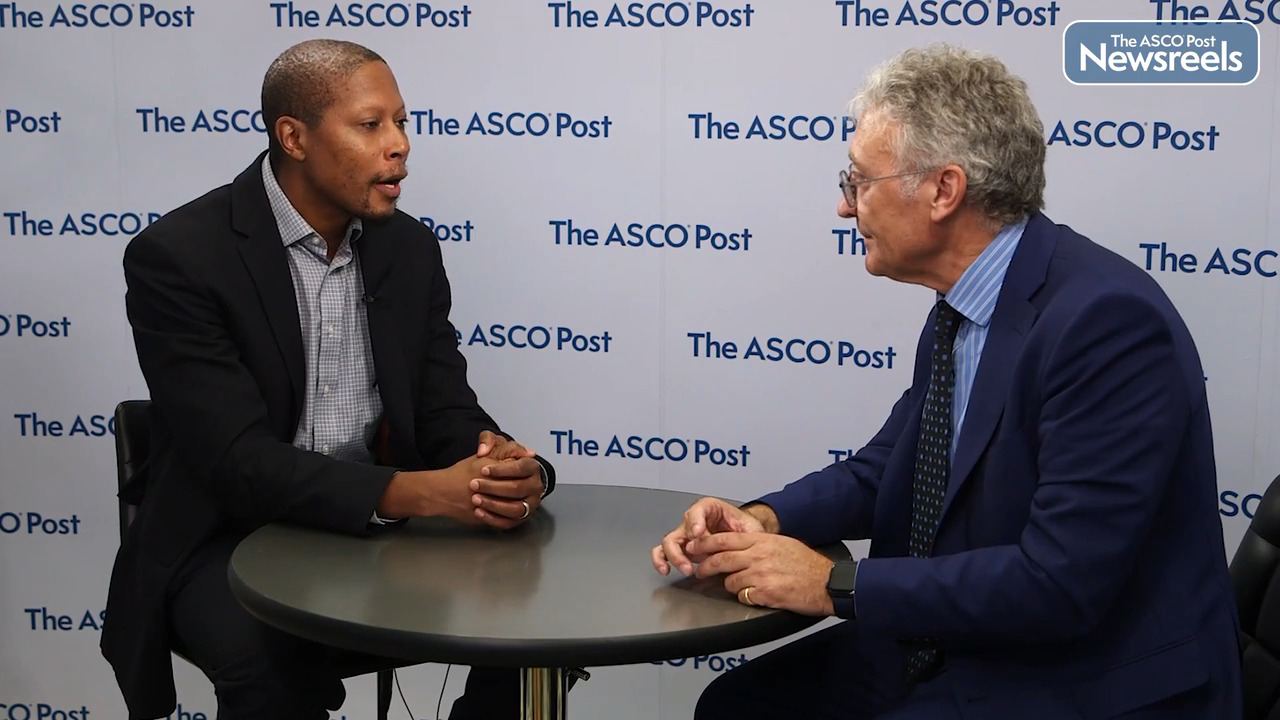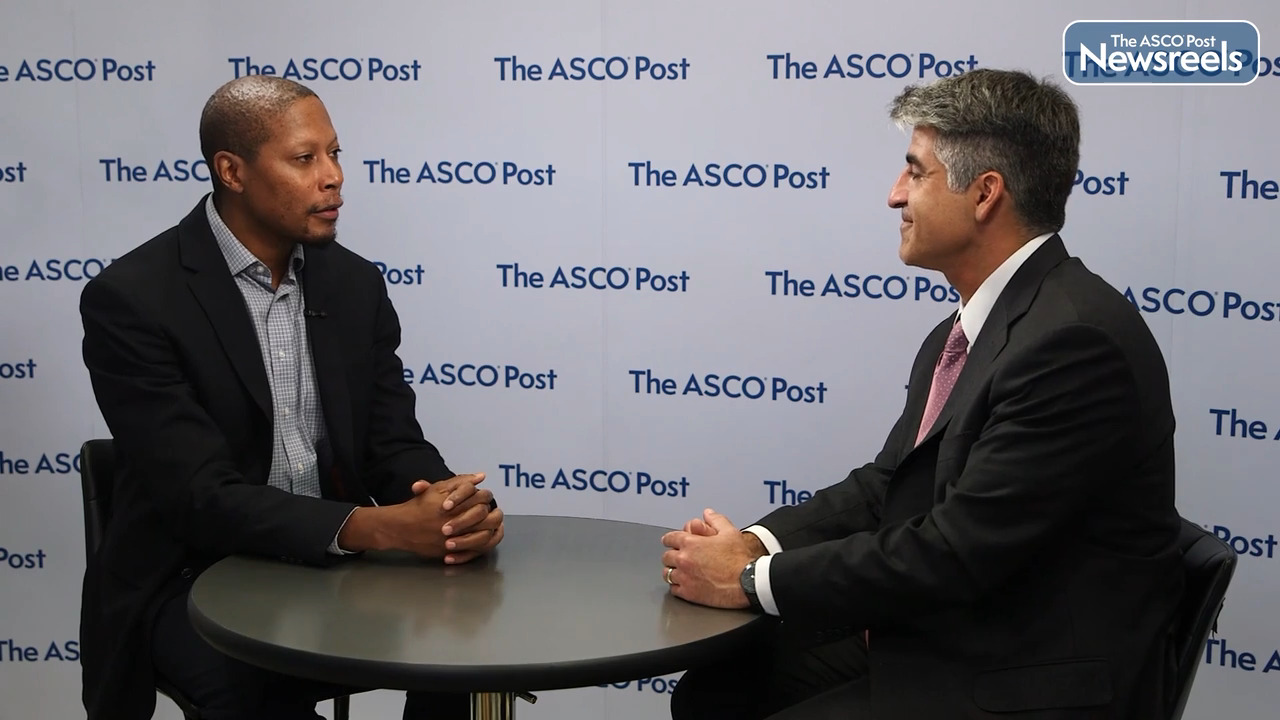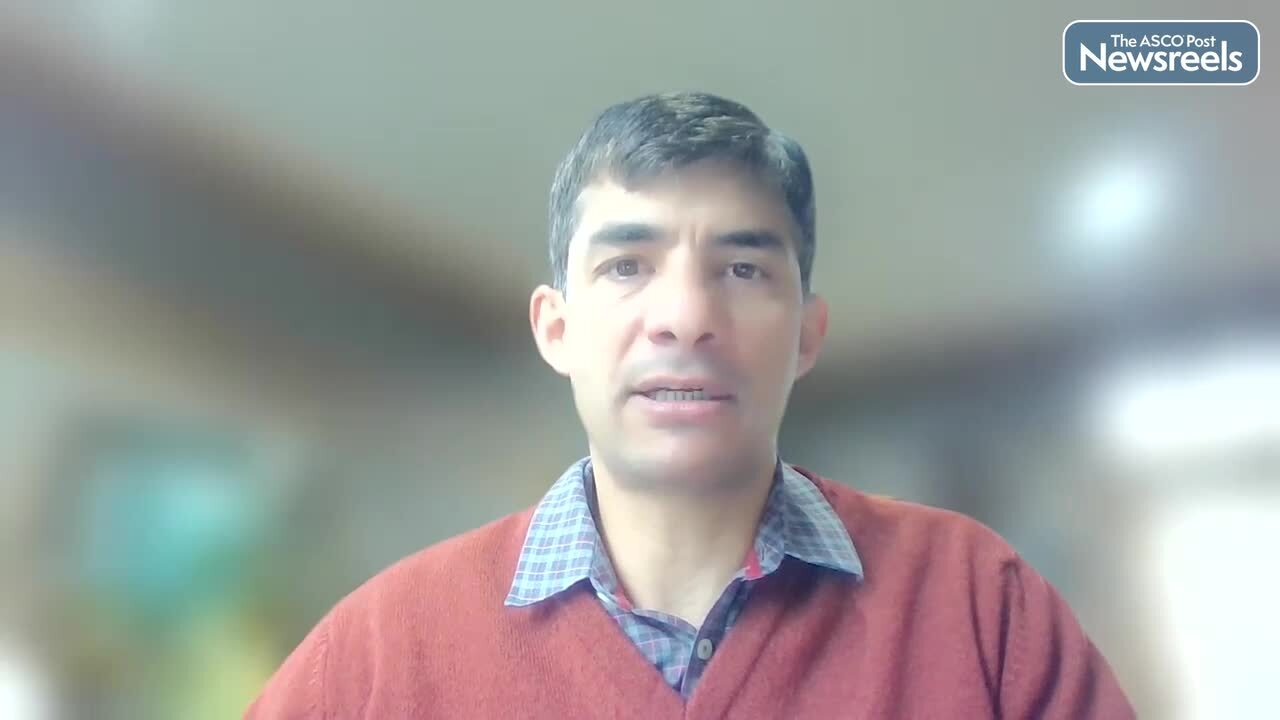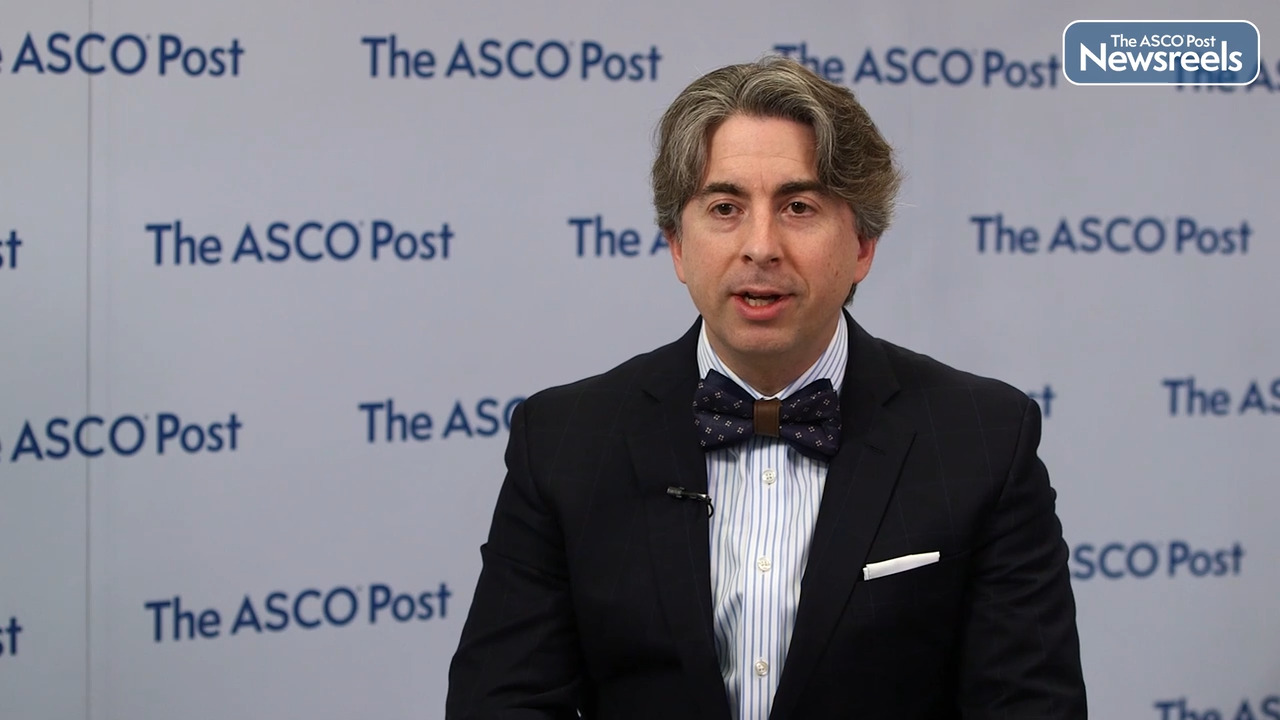Transcript
Disclaimer: This video transcript has not been proofread or edited and may contain errors.
Bobbie:
Hello Mansoor. It's lovely to see you. Congratulations on the RUBY trial. I'm so excited to hear about the data that you presented here at this ASCO meeting. Can you tell me a little bit more about this presentation of the RUBY trial?
Mansoor:
Sure. Thank you very much for asking. It's a privilege to be part of this success we are seeing for our patients. We are completely changing their outcome. What we have done we haven't seen in endometrial cancer for such a long time. Remember we got carboplatin Paclitaxel introduced more than 15 years ago and that's about it in first line. So really great achievement for our patients. The trial, as you know, is the idea was to add immune checkpoint inhibitor on top of chemotherapy and we took the high risk patients from early stages or from advanced stages stage three and four and first relapse. And we decided to add also the rare tumors to make sure that we do have some data on that carcinosarcomas glial cell. And we also discussed a lot if a patient has received adjuvant therapy before, how long it should be to that they relapsed that we would take them in the protocol.
We decided for six months platinum free interval to do that. And another very important thing we thought even though we knew that immune therapy is approved in second line, both in the DMMR as a single agent and in MMRP as Pembrolizumab. But we would like to see that it's not just the progression-free survival but we also get overall survival benefit in these patients. So keeping all that in mind, we randomized these trial, these patients primary endpoint, we're both PFS and OS but we have very important few secondary endpoints. And one of that is health related quality of life because one thing is what I feel, how my patient is doing and feeling. The other thing is how patient perception is, how they're doing and also for the new drugs, how we are going to work with these drugs.
What we can do if you need any mitigations plans. So for that reason we have patient reported outcomes in this we used the URTC scale C30 and C24. C30 is more general and C24 for endometrial cancer. And it was important because we wanted to catch all the aspects, especially for the gyne patients, for the endometrial cancer patients, their global score, their health score, their sexuality questions, all this and the symptoms related to the surgery, to all the therapy. So that data we have presented now was the patient reported outcomes in this population.
Bobbie:
How did the data that you gathered from these patient reported outcomes differ from your expected results? Were you surprised?
Mansoor:
I'm positively surprised. The reason is, first of all, I'm positively surprised. I was not aware that we will see such a huge benefit in the efficacy of the drug, especially in DMMR. We thought that we will have a hazard ratio of 0.5, we ended up in 0.28. That's substantial increase and that also reflects to the questionnaire. I think there is a very quick symptom relief and patient's quality of life is getting better.
So if you look at the curves, they start separating in the quality of life scheme for all reasons and they keep the separation. One thing is that the patients were very good to answer quality of life questions. We have above 95% of the patients who have answered and what we looked at and every patient had these questionnaires when they came to their treatment they had to fill it first before they came to got the treatment or saw the doctor and 95% is quite high. So what we have done is we have looked at in this what I presented, we looked at at the baseline and then at cycle seven because you have given six cycles with chemo, you're done with that. You're starting monotherapy cycle seven and then at cycle 13 when they're done with their first year of treatment. So that's a nice way to compare and when we compare that, we clearly see that all at cycle seven you have already moved the bar to the right side.
Bobbie:
I think that's a very important point to have answered those questions over the complete course of treatment. And looking at the specific time points where we know the side effects of our drugs are likely changing. So now that we've established that immunotherapy in combination with upfront chemo is a game changer for endometrial cancer, what do you think is going to happen to second line treatment now that we're going to be using immunotherapy in our upfront setting?
Mansoor:
I think the place for immunotherapy is in first line. Example is that we have OS as a one of the primary endpoints and the patients, 35% of the patients upon progression who were in placebo, they went down of receiving immune EQU inhibitors, either single agent or with Pembrolizumab upon progression. But still you see overall survival benefit and that guide us, yes, push it up front. That once that is said, we again come to the back to the point that we have not much available single agent chemotherapy is not something which is helpful here. But fortunately since we have seen the TCGA data and the molecular classification, we can see that there's so many targetable alterations which we can use. We can take P53 wild type and we have seen the subgroup analysis of SIENDO trial, which was presented last year, which showed a huge benefit in that population.
And a phase three trial is now starting for that. We have seen Amanda Federer presenting a very small but trial with her too, 50 patients, 50 odd patients. And now we can start working on that part. We did a trial, a small signal seeking trial paleo study where we added CDK4/6 inhibitor to letrozole versus placebo letrozole in the hormone receptor positive. And that was a nice signal and we are starting a phase three trial of that. So all these things will fit very well. Now that we are not going to treat all patients with drug A or drug B, we will be treating wisely, take the right patients and give the right drugs. And I think we are privileged that we are seeing all this in our lifetime.
Bobbie:
I agree. Thank you so much for your work and for meeting with me today.
Mansoor:
Thank you so much.
